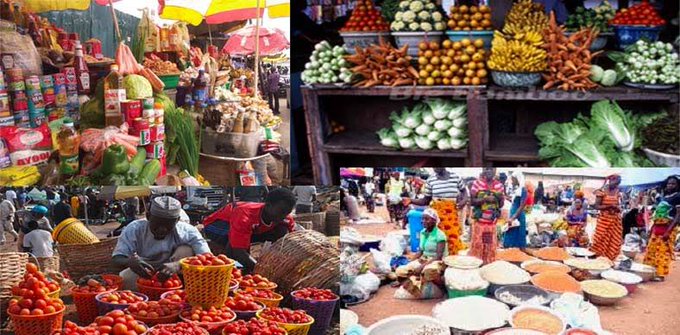Nigerians To Spend More On Food, Other Household Items In Next 6 Months – Report
Posted by Samuel on Fri 30th Aug, 2024 - tori.ng
A survey by the Central Bank of Nigeria has revealed striking projections about how Nigerian households are expected to allocate their income over the next six months.
The study's findings indicate that a significantly larger proportion of Nigerians' earnings is anticipated to be devoted to sustenance, specifically food expenditures.
According to the survey's results, a substantial majority of respondents (54.9 points) intend to allocate a considerable share of their income towards food and essential household items.
This allocation prioritises basic necessities, underscoring the fundamental importance of sustenance in household budgets.
In contrast, other vital expenditures trailed behind in the survey's rankings. Educational expenses garnered 35.4 points, denoting a notable yet relatively lower priority. Transportation costs followed closely with 30.2 points, while electricity and medical expenses lagged behind at 20.0 and 12.2 points, respectively.
These findings suggest that the average Nigerian household is bracing for increased financial pressure, particularly with regards to food expenditures, which may potentially strain overall economic well-being.
In the next three months, consumers are expected to spend a substantial amount of their income on food and other household items (56.0 points), and education (35.2 points).
The CBN survey also states that for the next six months, prices of the following items are expected to rise: Transportation (61.0 points), Rents (60.1 points), Purchase of House (58.8 points), Purchases of Car/Motor Vehicle (57.9 points) and Medical Expenses (57.2 points).
These disturbing trends emerge against a backdrop of escalating financial strain, as individuals are compelled to delve into their savings or succumb to debt to satisfy their essential financial requirements.
This precarious situation is further exacerbated by the nation's soaring inflation rate, which has dramatically increased the cost of living. Specifically, food inflation has surged to an alarming 39%, while the overall inflation rate stands at a staggering 33.40%.
Despite assurances from the government to implement measures aimed at mitigating the effects of this runaway inflation, countless Nigerians continue to struggle with meeting fundamental necessities, including access to nutritious food.
The gravity of this situation is underscored by startling statistics from the Food and Agriculture Organisation, revealing that a staggering 31.8 million Nigerians are currently grappling with acute food insecurity.
This alarming figure serves as a poignant reminder of the urgent need for effective interventions to address the deepening financial woes afflicting the nation.
As the inflationary pressures persist, the vulnerability of households to debt and financial hardship intensifies, casting a shadow of uncertainty over the well-being of millions.














































